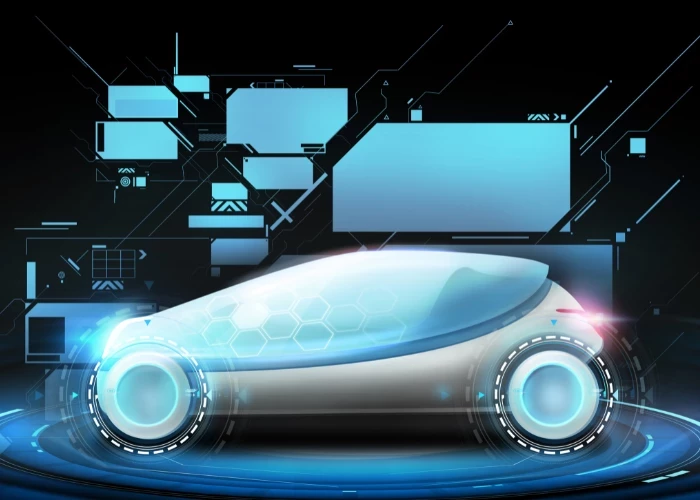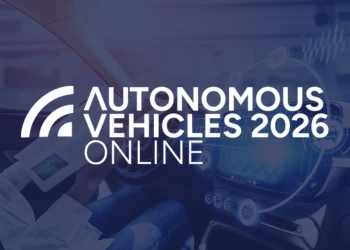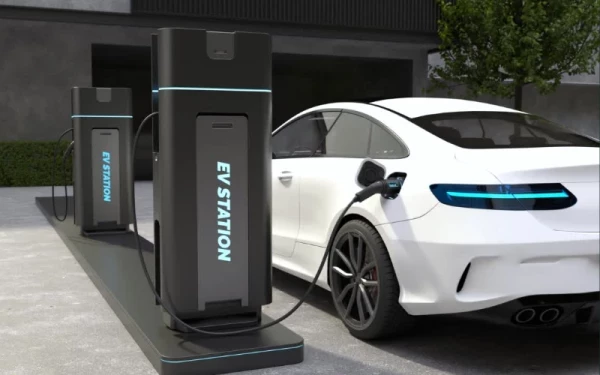The dangers of connected cars
Add bookmarkDigital transformation is affecting every business sector, and the automotive industry is no exception. Thanks to innovative software engineers and auto manufacturers, smart, fully connected vehicles are coming to the streets, giving more freedom and comfort to their drivers.
It’s estimated that there are approximately 21 million Internet-connected cars on the roads today, and researchers predict that by 2020 this number will grow to 200 million.
The added connectivity is undoubtedly beneficial both for drivers and car manufacturers. Thanks to V2V (Vehicle-to-Vehicle) and V2I (Vehicle-to-Infrastructure) technologies, we no longer have to worry about traffic jams, road constructions, parking availability or weather conditions. But connectivity is not just about safer, fuss-free driving.
Voice recognition allows drivers to schedule meetings, control their entertainment, temperature, make hands-free phone calls, and send text messages without taking their hands off the wheel. Built-in wireless connections will also allow you unlock your car from a remote distance, automatically stop the car if you notice it has been stolen, or check the fuel level while sitting comfortably on your sofa.
The car as we know it is about to change dramatically, but then again - big changes don’t come without side effects. Cybersecurity experts warn that the increasing connectivity creates new vulnerabilities as Internet-connected and self-driven cars are at risk of being discovered and hacked.
The cyber risks of the connected car
The truth is - if your car is connected to the Internet, it can be hacked just like any other IoT device. However, if a hacker manages to take control of your vehicle, the consequences may be much worse than having your smart fridge hacked.
A few years ago, Chrysler had to recall 1.4 million vehicles after two hackers had been able to remotely control a Jeep over the Internet, taking over the vehicle’s dashboard, steering, brakes, and transmission.
The biggest concern here is that once a cybercriminal gets their hands on your vehicle’s controls, they can disable the car's brakes to cause a crash. Or they can activate the vehicle’s microphone to listen to your conversations and turn off the car’s security mechanisms to steal it.
But hackers aren’t the only bad guys here. Connected cars themselves make pretty good spies as they are now being created to collect specific data, such as your GPS coordinates and your driving habits. More precisely, your smart car may be monitoring how fast you drive, how much fuel you use, how hard you brake, and how often you or your passengers wear a seatbelt. Not creepy enough? What about the fact that your car knows what music you prefer, how often you call your wife, where you like to eat and the places you stop to shop?
Most people don’t realize it, but by monitoring our everyday movements, car companies collect massive amounts of our personal information. While automakers claim that such data collection can help improve their services, corporations, governments and law enforcement agencies would also love to have this data.
It looks that our cars are becoming computers on wheels that are capable of collecting lots of information about our personal lives. What’s more, as some examples show, connected vehicles can be hacked as easily as our smartphones. So the big question is: can we do anything about it?
Is there a way to protect your car from being hacked?
Let’s agree on one thing - when it comes to the Internet, there isn’t such thing as 100% privacy and security. While automakers claim they will never sell your driving data to third-parties without your consent, hackers won’t promise you any of that. So drivers should be aware of the possible threats and learn some of the rules that will help them to feel safer when it comes to cyberattacks.
If you own a connected car, here’s what you should know:
- Always make sure that your vehicle’s software is up-to-date, and be careful if you choose to make any modifications to it.
- Check current recalls to learn if your car needs to be repaired.
- Be careful when connecting third-party devices to your vehicle.
- Watch out for fake software updates.
- Don’t fall for phishing scams.
A research firm from Norway demonstrated how easily hackers could take control over your car with a simple phishing scam. To pull off the theft, researchers offered a free burger from a nearby restaurant for a driver who agrees to connect to a public Wi-Fi hotspot and install a “special” app to their smartphone. This allowed the researchers to take full control of another app that is used by drivers to open their car remotely.
The thing is that public Wi-Fi networks are usually poorly secured or don’t have any protection at all, which makes them super easy to hack. So when you connect your phone to an unsecured Wi-Fi hotspot, you immediately put yourself at risk of falling a victim of cybercrime. Careless behavior makes it even worse - downloading apps from untrusted sources and then connecting your phone to your vehicle is the shortest way to being hacked.
However, you can’t avoid every threat that lurks online, so common sense sometimes is not enough. Therefore, to prevent hackers from breaking into your phone and getting access to your vehicle from there, it’s recommended to install a VPN (Virtual Private Network) app to your device.
Virtual Private Network technology is by far the most trusted security tool when it comes to protecting your private data from snoopers and cybercriminals. A trusted VPN service helps enhance your security while you’re on the Internet. It does so by establishing an encrypted connection between your phone and a remote VPN server run by a VPN service provider. With a VPN on, you can be sure your communications and private information is safe, even on unsecured public networks. So once you are sure your phone is protected, you can securely connect it to your vehicle.
Even though the actual risk of someone hacking into your car is quite low, cybersecurity is the topic you should think about right now. Because in the long run, all vehicles will turn to smart devices, which will not only enhance our driving experience but will become attractive targets to hackers.
Sources
- https://www.theguardian.com/technology/2017/aug/13/robot-connected-cars-hacking-risks-driverless-vehicles-ross-now
- http://www.businessinsider.com/an-alleged-jeep-hack-and-steal-spree-shows-the-dangers-of-connected-cars-2016-8
- https://interestingengineering.com/what-is-car-hacking-what-can-you-do-prevent
- https://www.wired.com/2015/07/jeep-hack-chrysler-recalls-1-4m-vehicles-bug-fix/
- https://nordvpn.com/blog/vpn-connection-guide/





















